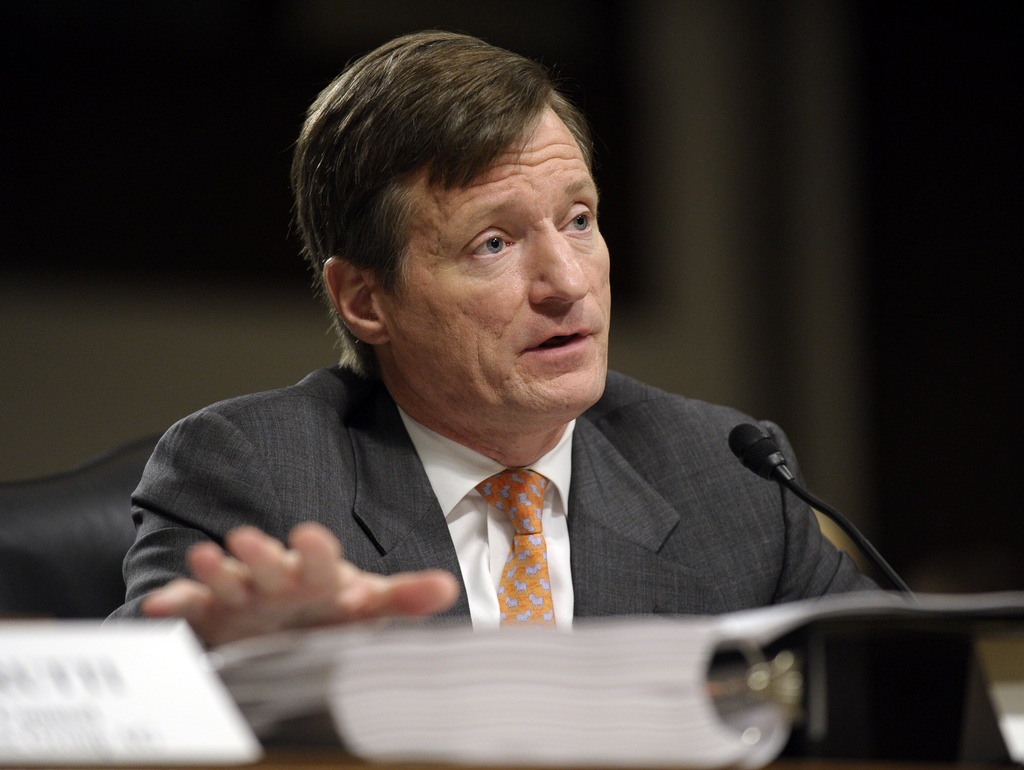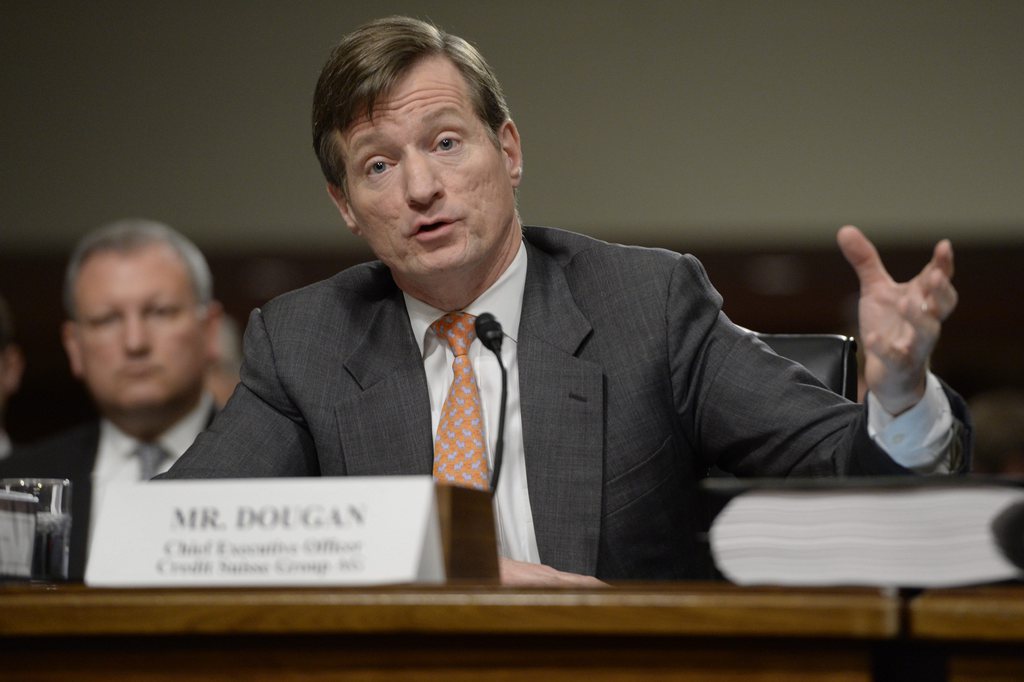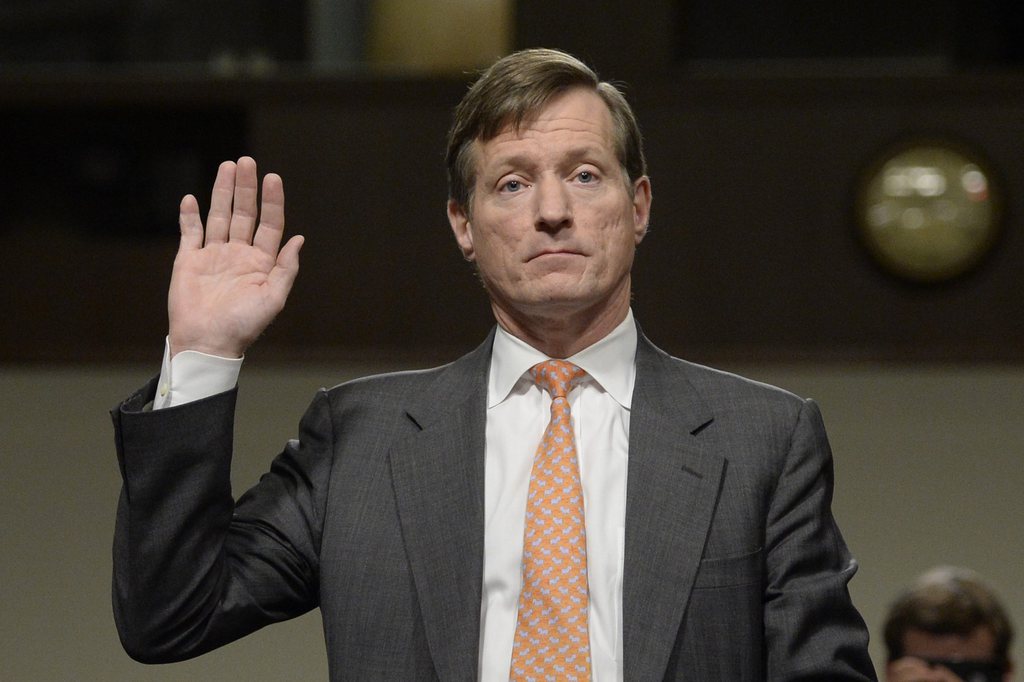Swiss battle to avoid another UBS tax debacle

Swiss banks are in the firing line – Credit Suisse went before the United States Senate earlier this week – but so far the Swiss authorities have contained the fallout to prevent another UBS-style disaster. Experts are divided, however, on how the US Department of Justice will act on Credit Suisse.
In 2008 and 2009 the credibility of Switzerland’s largest bank, UBS, the country’s fabled banking secrecy and the Swiss wealth management industry fell like dominoes under attack from a concerted US campaign against tax evasion.
The now stiffened Swiss defences have outraged some US lawmakers and, perhaps counter-intuitively, frustrated Credit Suisse in its attempts to shrug off unwanted legal attention.
A US Senate hearing vented its anger on Wednesday at the slow progress in bringing Credit Suisse to heel for aiding and abetting tax cheats. Led by Senator Carl Levin, the hearing demanded a return to the heady days of US prosecutors steamrollering over illicit Swiss banks with a flurry of criminal threats.
But the playing field has changed since UBS coughed up a $780 million fine (CHF693 million) and the Swiss authorities handed over thousands of client names to the US tax collector.
Despite admitting that some of its employees helped US clients evade taxes, only 238 names have been given to the US authorities from 22,000 accounts held at Credit Suisse in 2008. This is a result of a Swiss-US treaty signed in August 2013 that expressly forbids the handing over of client names to the US.
“If we are not going to get cooperation from the Swiss then we are going to use our own means,” warned Senator Levin, referring to subpoenas and court summonses.
All guns blazing?
Opinion is divided whether the Department of Justice (DoJ), which was also grilled by senators during the hearing, will now be stung into adopting aggressive UBS-style tactics against Credit Suisse.
“Pressure was put on the DoJ to issue more criminal summonses against Swiss banks, but the DoJ stood their ground and said it did not want to go the same way with Credit Suisse as it did with UBS,” Peter V. Kunz, a tax expert at the University of Bern, told swissinfo.ch. “As a result of this testimony, I do not think there will be more criminal prosecutions against Swiss banks.”
But Beckett Cantley, a tax specialist at the John Marshall Law School in Atlanta, US, warned that the power of Senator Levin and the Senate permanent subcommittee on investigations (PSI) should not be taken lightly.
“I would expect increased enforcement activity to be the response at the DoJ, especially with respect to Credit Suisse,” he told swissinfo.ch. “The PSI is very good at spurring action by holding the leadership of key agencies’ [DoJ] feet to the fire.”
He is also concerned at the obvious irritation shown by Levin and his fellow senators at the delay in getting names of US tax cheats. It might be interpreted as Credit Suisse not learning the lessons of UBS and refusing to play ball, he argued.
“Credit Suisse could actually end up in a worse situation than UBS did if they don’t work something out with DoJ – given the heat being applied by Senator Levin,” he said.
In 2007, the US Department of Justice (DoJ) started investigating UBS for aiding and abetting tax cheats. A year later UBS admitted its guilt and paid a $780 million fine.
The Swiss government authorised the handing over of some 4,500 UBS client names to the Internal Revenue Service, effectively breaching Swiss banking secrecy.
The DoJ started criminal probes into 14 other Swiss banks, including Credit Suisse.
In 2012, Switzerland oldest bank, Wegelin, broke up and sold its non-US business to Raiffeisen under the weight of its DoJ investigation. A year later the rump of the bank folded.
Bank Frey last year also announced it would cease operations because of the US tax evasion investigations.
In August 2013, Switzerland and the US agreed a non-prosecution deal for banks that handed over information on US dealings. The data did not include client names or account details.
By the end of last year, 106 Swiss banks had signed up to the programme.
Several Swiss bankers, lawyers and wealth advisors have been subpoenaed by the US, including at least seven former Credit Suisse employees.
Many have remained in hiding, but one of the most senior, former senior UBS manager Raoul Weil, was arrested in Italy and extradited to the US at the end of last year.
Renewed resolve
Kunz believes there are other reasons that the Credit Suisse case will not descend into the near bloodbath of UBS five years ago. For one thing, the DoJ does not have the type of evidence provided by former UBS employee-turned-whistleblower Bradley Birkenfeld that pointed to managers condoning nefarious practices.
And while the diplomatic treaty route, so despised by Levin, may not have uncovered so many names straightaway, it has induced more than 100 Swiss banks to admit their culpability in one fell swoop.
But perhaps more importantly, the Swiss authorities have long since recovered from the shock of the sudden and aggressive attack on UBS, Kunz added. Panic has been replaced with resolve and poor knee-jerk responses with reasoned decisions, he argued.
“A lot of mistakes were made in relation to the UBS case, but nerves have now calmed down,” he said. “The DoJ must be aware that they would not have the same success now if they used the same tactics against Credit Suisse.”
Credit Suisse managers are hardly strutting around, exchanging high-fives, at the current state of affairs despite managing to avoid the emergency situation that faced UBS. Chief Executive Brady Dougan told the Senate hearing that the bank had tried to persuade the Swiss government to allow it to hand over client names.
Fine looming
The bank clearly wants to get the tax evasion monkey off its back so it can fully concentrate on business.
Its wealth management division attracted CHF18.9 billion in net new assets last year, but is underperforming compared with UBS which raked in CHF28.6 billion in 2013. But analysts are not convinced that this is solely down to Credit Suisse’s continued legal issues in the US.
“Credit Suisse has surely suffered some reputational damage,” Zurich Cantonal bank analyst Andreas Brun told swissinfo.ch. “But this is more in Switzerland than other countries. There are not so many bad headlines abroad.”
After recently paying a $196 million fine to the US financial regulator for giving unauthorised cross-border investment advice, Credit Suisse still has a pot of around CHF300 million to clear up outstanding tax evasion issues.
However, Brun believes the final figure is more likely to surpass the $780 million paid by UBS in 2009.

In compliance with the JTI standards
More: SWI swissinfo.ch certified by the Journalism Trust Initiative


You can find an overview of ongoing debates with our journalists here. Please join us!
If you want to start a conversation about a topic raised in this article or want to report factual errors, email us at english@swissinfo.ch.